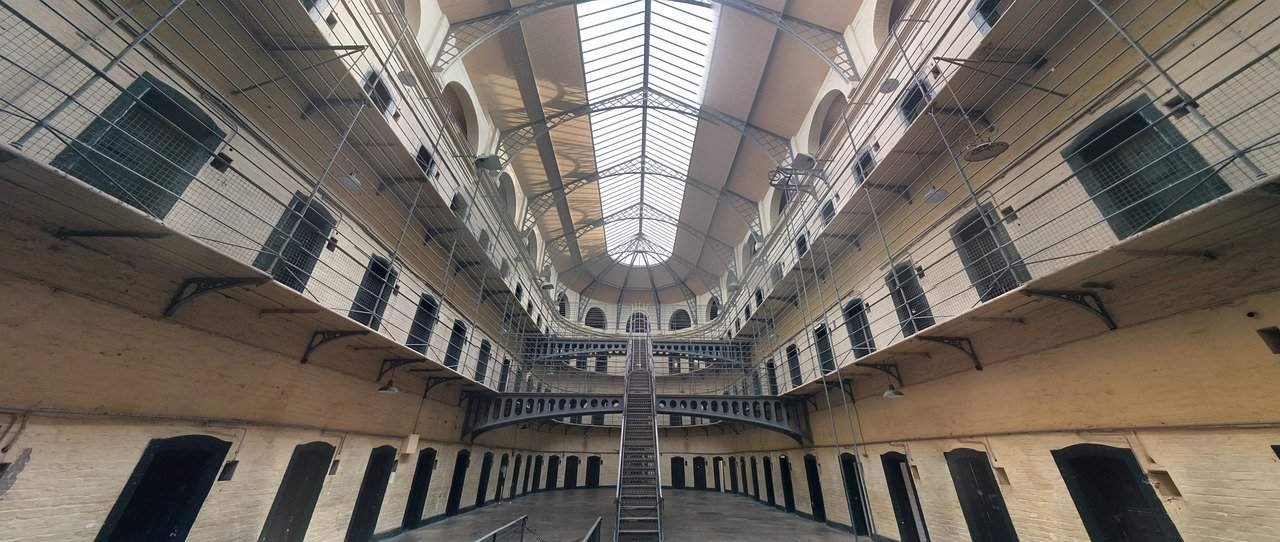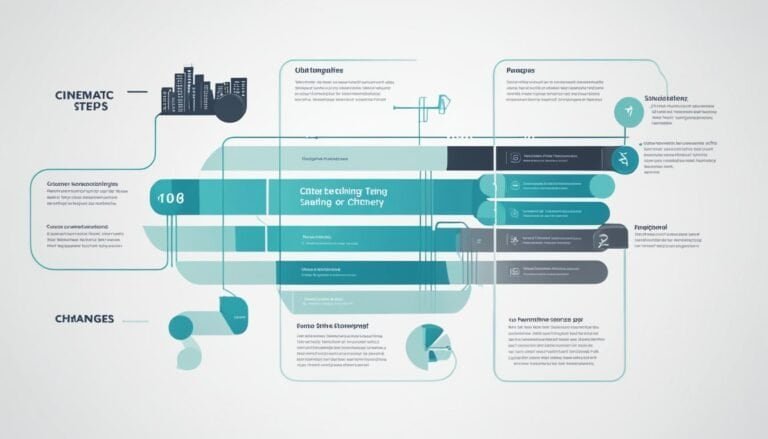Correctional Psychology
Delve into the dynamic domain of correctional psychology, where professionals play a pivotal role in rehabilitating and supporting individuals in prison settings.
From conducting mental health assessments to implementing therapeutic interventions, correctional psychologists employ diverse strategies to address behavioral challenges and reduce recidivism.
Their focus lies in promoting rehabilitation and reintegration, ultimately contributing to the overall well-being of inmates and the broader community.
Key Takeaways
- Correctional psychologists play a crucial role in assessing, diagnosing, and treating the mental health needs of incarcerated individuals.
- Mental health assessments in prisons are essential for identifying inmates’ psychological needs and developing tailored intervention and treatment plans.
- The prison environment can have a significant impact on mental health assessments, with stressful conditions and lack of privacy potentially hindering transparency and accurate diagnoses.
- Therapeutic interventions, such as individual and group therapy, cognitive-behavioral therapy, and medication management, are important for addressing inmates’ mental health for rehabilitation and well-being.
The Role of Correctional Psychologists
When working in correctional settings, correctional psychologists play a crucial role in assessing, diagnosing, and treating the mental health needs of incarcerated individuals. They provide essential staff training and support to ensure that correctional officers are equipped to handle the unique challenges posed by mentally ill inmates. Additionally, correctional psychologists are responsible for conducting thorough risk assessments to identify individuals who may pose a danger to themselves or others. By implementing effective risk management strategies, they contribute to maintaining a safe and secure environment within the correctional facility.
Correctional psychologists also provide support in developing and implementing programs aimed at addressing the mental health needs of the inmate population. They work closely with correctional staff to ensure that all individuals receive the necessary care and treatment. Through their expertise, correctional psychologists play a vital role in preventing and managing crises within the correctional setting.
Mental Health Assessment in Prisons
When conducting mental health assessments in prisons, you play a crucial role in identifying and addressing inmates’ psychological needs.
Your evaluations can have a significant impact on the overall prison environment, as they inform the development of tailored intervention and treatment plans.
Assessing Inmate Mental Health
To effectively assess inmate mental health in prisons, you should utilize evidence-based assessment tools and techniques. It is crucial to prioritize inmate well-being through comprehensive psychological evaluations. By employing standardized assessment instruments and conducting thorough interviews, psychologists can gain valuable insights into the mental health needs of inmates. Additionally, collaborating with correctional staff and utilizing observation of behavior within the prison environment can provide a more holistic understanding of an inmate’s mental state. By integrating multiple sources of information, psychologists can make more accurate diagnoses and develop tailored treatment plans. It is essential to approach each assessment with empathy and cultural sensitivity, considering the unique experiences and backgrounds of the individuals being evaluated.
| Emotional Response | Examples of Techniques |
|---|---|
| Empathy | Active listening, showing understanding |
| Support | Providing reassurance, validation of feelings |
| Validation | Acknowledging their experiences, feelings |
Impact on Prison Environment
How does the prison environment impact the accuracy of mental health assessments for inmates?
The prison environment has a significant psychological impact on inmates, which can affect the accuracy of mental health assessments.
The stressful and often unsafe conditions within prisons can exacerbate existing mental health issues or even cause new ones to develop.
This can make it challenging for mental health professionals to accurately assess and diagnose inmates.
Additionally, the lack of privacy and confidentiality in the prison setting can deter inmates from being fully transparent about their mental health concerns.
Furthermore, the focus on security and control in the prison environment may overshadow the importance of inmate rehabilitation and mental health assessment.
Therefore, it’s crucial to consider the unique challenges posed by the prison environment when conducting mental health assessments for inmates.
Therapeutic Interventions for Inmates
When it comes to therapeutic interventions for inmates, addressing inmate mental health is essential.
Implementing recidivism reduction strategies is another crucial aspect to consider.
These points will be discussed further in the following sections.
Inmate Mental Health
Implementing therapeutic interventions for inmates’ mental health is crucial for their rehabilitation and well-being. Inmate therapy and psychological support play a vital role in addressing mental illness within correctional facilities. Providing treatment options such as individual and group therapy, cognitive-behavioral therapy, and medication management can significantly improve inmates’ mental health.
Psychological support from qualified mental health professionals can help inmates develop coping skills, manage symptoms, and address underlying issues contributing to their criminal behavior. Additionally, creating a supportive and therapeutic environment within the correctional system can promote positive behavior change and reduce the risk of recidivism.
Recidivism Reduction Strategies
To reduce recidivism rates, one approach is to offer inmates therapeutic interventions aimed at addressing underlying issues contributing to criminal behavior. This can be done through implementing cognitive behavioral therapy (CBT), which allows inmates to recognize and change negative thought patterns and behaviors.
Another important intervention is substance abuse treatment, as addiction is a significant factor in criminal behavior. Providing support and intervention for individuals struggling with addiction can help address this issue and reduce the likelihood of reoffending.
In addition to CBT and substance abuse interventions, social skills training is also crucial. This helps inmates develop healthy coping mechanisms and build positive relationships, which can reduce the likelihood of engaging in criminal behavior again.
Furthermore, it is important to provide access to mental health services for inmates. This ensures that individuals receive treatment for any underlying psychological conditions that may be contributing to their criminal behavior.
Strategies for Addressing Behavioral Challenges
Address the behavioral challenges of inmates in correctional facilities by utilizing evidence-based therapeutic approaches.
Behavior modification programs can be effective in addressing problematic behaviors by implementing a system of rewards and consequences to encourage positive behavioral changes.
Inmates can benefit from cognitive therapy, which focuses on identifying and changing negative thought patterns and beliefs that contribute to their behavior. By addressing the underlying cognitive distortions, inmates can develop healthier coping mechanisms and decision-making skills.
Furthermore, implementing structured routines and schedules within the correctional facility can provide a sense of stability and predictability for inmates, which can help reduce impulsive or disruptive behaviors.
Additionally, providing access to vocational and educational programs can offer inmates a sense of purpose and motivation to engage in pro-social behaviors.
It’s important to recognize that addressing behavioral challenges in a correctional setting requires a multifaceted approach that considers the individual needs of each inmate.
Reducing Recidivism Through Psychological Interventions
You can decrease recidivism rates through targeted psychological interventions.
By implementing cognitive behavioral therapy (CBT) and reentry programs, individuals can develop the necessary skills to adapt to life outside of prison.
Substance abuse and anger management are crucial areas to address through these interventions, as they’re often underlying factors contributing to criminal behavior.
CBT helps individuals recognize and change negative thought patterns and behaviors, reducing the likelihood of reoffending.
Reentry programs offer support with finding employment, housing, and accessing community resources, decreasing the likelihood of returning to criminal activities.
Substance abuse treatment addresses the root causes of addiction, reducing the risk of relapse and criminal behavior.
Additionally, anger management interventions equip individuals with healthier ways to cope with and express their emotions, lowering the risk of violent offenses.
- Cognitive behavioral therapy (CBT)
- Reentry programs
- Substance abuse
- Anger management
Promoting Rehabilitation and Reintegration
By implementing comprehensive reentry programs, individuals leaving the correctional system can receive the necessary support for successful rehabilitation and reintegration into society. Rehabilitation programs play a crucial role in addressing the underlying factors that contribute to criminal behavior. These programs focus on providing cognitive-behavioral therapy, substance abuse treatment, vocational training, and educational opportunities. By addressing these needs, individuals can develop essential skills and coping mechanisms to avoid reoffending.
| Rehabilitation Programs | Reintegration Support |
|---|---|
| Cognitive-Behavioral Therapy | Job Placement Assistance |
| Substance Abuse Treatment | Housing Support |
| Vocational Training | Mentorship Programs |
| Educational Opportunities | Community Resources |
| Life Skills Development | Family Reunification |
Reintegration support is equally vital in ensuring a successful transition back into society. Job placement assistance, housing support, mentorship programs, and access to community resources can significantly impact an individual’s ability to reintegrate and lead a law-abiding life. By providing a continuum of care that addresses both rehabilitation and reintegration, the correctional system can play a pivotal role in reducing recidivism and promoting positive outcomes for individuals reentering society.
Conclusion
You now understand that correctional psychology is the key to transforming inmates into model citizens. With the power of psychological interventions, recidivism rates plummet and rehabilitation flourishes.
From mental health assessments to therapeutic interventions, correctional psychologists play a vital role in promoting positive behavioral change. Keep in mind that without their expertise, prisons would be chaotic and rehabilitation efforts would be futile.
Embrace the impact of correctional psychology and its ability to turn lives around.






